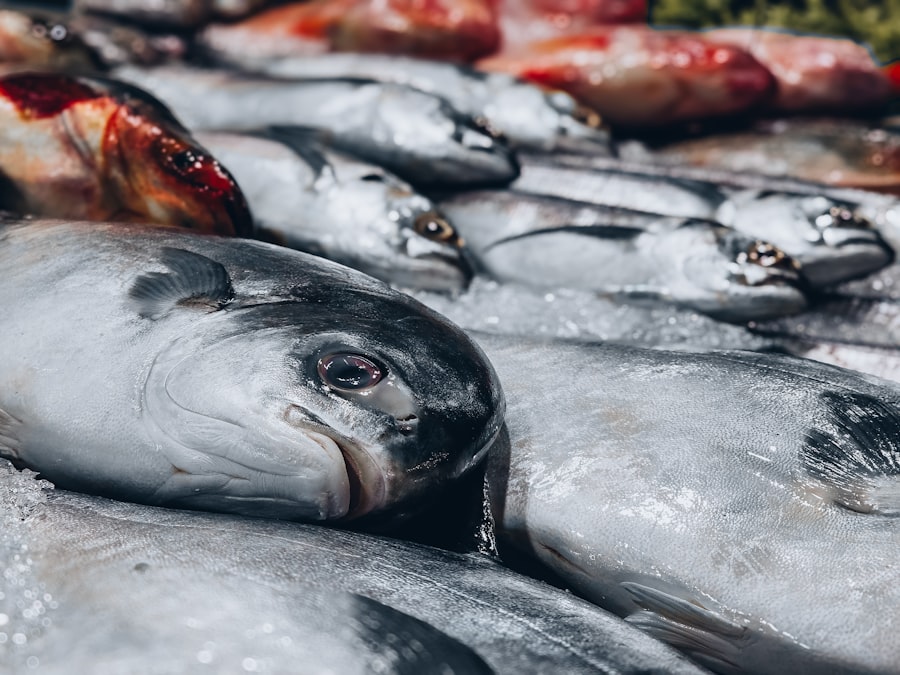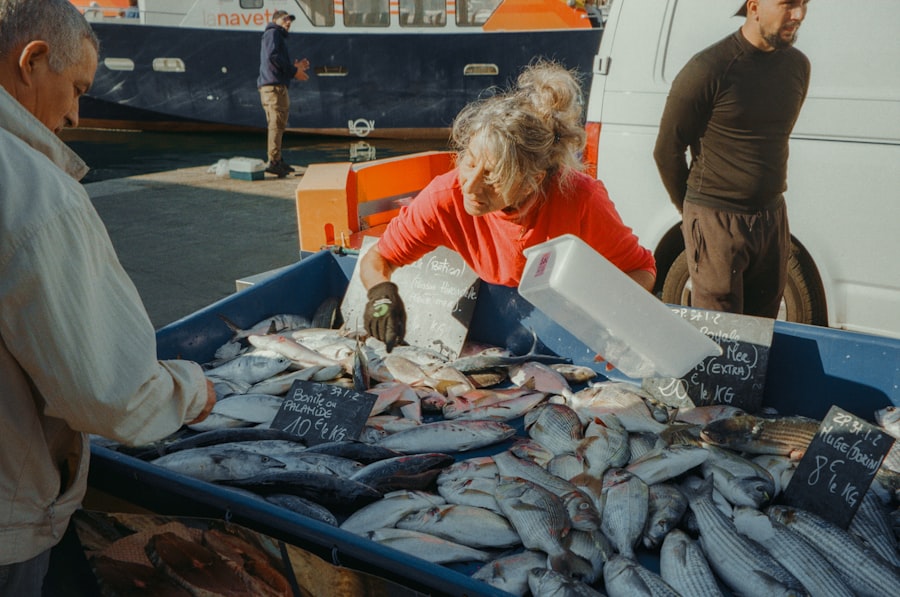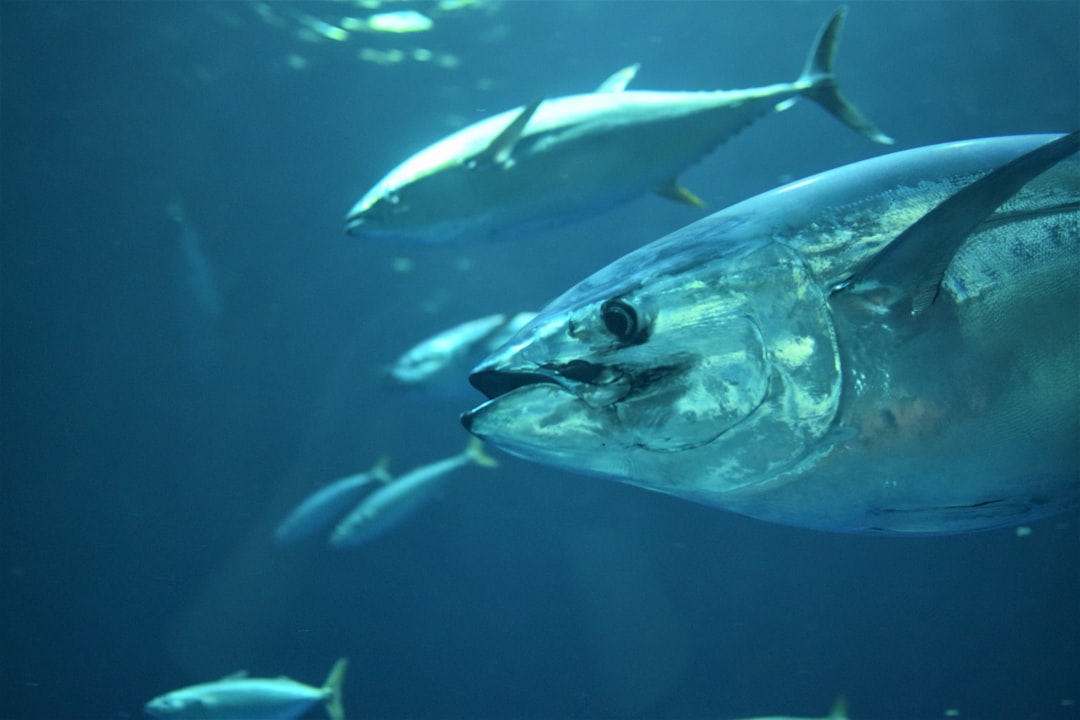The tuna industry, a vital sector of the global economy, has recently been embroiled in a significant corruption scandal that has raised serious concerns about ethical practices and governance within the industry. This scandal, which has unfolded over the past few years, involves allegations of bribery, fraud, and mismanagement among key players in the tuna supply chain. The ramifications of these actions extend far beyond the immediate stakeholders, affecting consumers, governments, and the environment alike.
As the scandal continues to unravel, it has become increasingly clear that the integrity of the tuna industry is at stake, prompting calls for reform and accountability. The corruption scandal has not only tarnished the reputation of the tuna industry but has also highlighted systemic issues that have long plagued it. From illegal fishing practices to exploitation of labor, the industry has faced scrutiny for its lack of transparency and ethical standards.
As investigations unfold, the public is becoming more aware of the complexities involved in tuna production and distribution, leading to a growing demand for change. This article will explore the various dimensions of the tuna industry corruption scandal, examining its global impact, key players, environmental consequences, economic implications, legal responses, consumer awareness, social justice issues, international cooperation efforts, and the future of the industry.
Key Takeaways
- The tuna industry corruption scandal has widespread global environmental, economic, and social impacts.
- Key players include major corporations, government officials, and regulatory bodies involved in illicit activities.
- Environmental damage includes overfishing and harm to marine ecosystems due to corrupt practices.
- Legal and regulatory responses are being implemented internationally to combat corruption and promote sustainability.
- Consumer awareness and international cooperation are crucial for driving reform and ensuring a sustainable future for the tuna industry.
The Global Impact of the Tuna Industry Corruption Scandal
The global impact of the tuna industry corruption scandal is profound and multifaceted. As one of the most lucrative sectors in the seafood market, tuna fishing plays a crucial role in the economies of many countries, particularly those in the Pacific region. The scandal has disrupted trade relationships and raised questions about the sustainability of tuna stocks, which are already under pressure from overfishing.
Countries that rely heavily on tuna exports are now facing economic uncertainty as buyers become wary of engaging with suppliers implicated in corrupt practices. Moreover, the scandal has sparked international outrage and calls for greater accountability within the industry. Consumers around the world are increasingly concerned about where their food comes from and how it is produced.
The revelations surrounding corruption have led to a decline in consumer trust, prompting some to reconsider their purchasing decisions. As a result, companies that fail to address these issues may find themselves at a competitive disadvantage in an increasingly conscientious market.
Key Players in the Tuna Industry Corruption Scandal

The tuna industry corruption scandal involves a complex web of key players, including government officials, corporate executives, and fishing companies. At the heart of the scandal are allegations that certain individuals and organizations engaged in bribery to secure fishing licenses and contracts, circumventing regulations designed to protect marine resources.
Corporate entities are also under scrutiny as investigations reveal potential collusion between businesses and government officials. Some companies have been accused of turning a blind eye to illegal fishing practices or engaging in unethical behavior to maximize profits. This collusion not only undermines fair competition but also poses significant risks to marine ecosystems.
As public awareness grows, there is increasing pressure on these key players to take responsibility for their actions and implement reforms that promote transparency and sustainability.
Environmental Consequences of the Tuna Industry Corruption Scandal
| Metric | Value | Description |
|---|---|---|
| Illegal Fishing Incidents | 150+ | Number of reported illegal fishing activities linked to the scandal |
| Overfished Tuna Stocks | 3 Major Species | Species severely impacted by overfishing due to corrupt practices |
| Bycatch Rate Increase | 25% | Percentage increase in unintended catch of non-target species |
| Marine Habitat Damage | 5000 sq km | Estimated area of coral reefs and marine habitats damaged |
| Reduction in Tuna Population | 40% | Estimated decline in tuna population over 5 years |
| Carbon Emissions Increase | 10% | Increase in emissions due to extended fishing trips and illegal operations |
| Enforcement Actions Taken | 75 | Number of regulatory or legal actions initiated post-scandal |
The environmental consequences of the tuna industry corruption scandal are alarming and far-reaching. Corruption often leads to lax enforcement of regulations designed to protect fish stocks and marine habitats. When fishing companies engage in illegal practices or bribe officials to overlook violations, it can result in overfishing and depletion of tuna populations.
This not only threatens the species themselves but also disrupts entire marine ecosystems that rely on balanced populations. Additionally, the scandal has implications for biodiversity and ocean health. Unsustainable fishing practices can lead to bycatch—unintended capture of non-target species—which further exacerbates ecological imbalances.
The long-term effects of these practices can be devastating, leading to diminished fish stocks and loss of livelihoods for communities dependent on fishing. As awareness of these environmental issues grows, there is an urgent need for concerted efforts to address corruption and promote sustainable fishing practices.
Economic Implications of the Tuna Industry Corruption Scandal
The economic implications of the tuna industry corruption scandal are significant and wide-ranging. For countries that depend on tuna exports as a primary source of revenue, the fallout from corruption can be devastating. The loss of trust among international buyers can lead to decreased demand for tuna products, resulting in financial losses for both governments and local fishing communities.
This economic instability can have ripple effects throughout entire economies, particularly in developing nations where fishing is a critical livelihood. Furthermore, the scandal raises questions about fair trade practices within the industry. Companies that engage in corrupt activities may gain an unfair advantage over competitors who adhere to ethical standards.
This not only undermines market integrity but also discourages responsible business practices across the sector. As consumers become more aware of these issues, there is potential for a shift towards supporting companies that prioritize ethical sourcing and sustainability, which could reshape market dynamics in favor of transparency.
Legal and Regulatory Responses to the Tuna Industry Corruption Scandal

In response to the tuna industry corruption scandal, legal and regulatory frameworks are being scrutinized and re-evaluated. Governments around the world are recognizing the need for stronger enforcement mechanisms to combat corruption within the fishing sector. This includes implementing stricter regulations on licensing and monitoring fishing activities to ensure compliance with sustainable practices.
Additionally, international cooperation is essential for addressing cross-border corruption that often complicates enforcement efforts. Legal actions against individuals and companies implicated in corrupt practices are also gaining momentum. Investigations are underway in several countries, with authorities seeking to hold accountable those who have exploited their positions for personal gain.
These legal responses not only serve as a deterrent but also signal a commitment to restoring integrity within the industry. However, challenges remain in ensuring that enforcement is consistent and effective across different jurisdictions.
Consumer Awareness and Response to the Tuna Industry Corruption Scandal
Consumer awareness plays a pivotal role in shaping the future of the tuna industry amid the corruption scandal. As information about unethical practices becomes more accessible through media coverage and advocacy campaigns, consumers are increasingly demanding transparency from brands they support. This shift in consumer behavior has prompted some companies to reevaluate their sourcing practices and commit to more sustainable and ethical approaches.
In response to growing concerns about corruption and environmental degradation, many consumers are seeking out certifications that guarantee responsible fishing practices. Labels such as Marine Stewardship Council (MSC) certification provide assurance that products meet rigorous sustainability standards. As consumers prioritize ethical consumption, companies that fail to adapt may find themselves losing market share to competitors who embrace transparency and sustainability.
Social Justice and Labor Issues in the Tuna Industry Corruption Scandal
The tuna industry corruption scandal also intersects with pressing social justice and labor issues. Reports have surfaced detailing exploitative labor practices within the industry, including human trafficking and poor working conditions for fishermen. Corruption can exacerbate these issues by allowing companies to operate without oversight or accountability for labor rights violations.
As a result, vulnerable populations may continue to suffer while those at the top benefit from corrupt practices. Addressing social justice issues within the tuna industry requires a multifaceted approach that includes legal reforms, improved labor standards, and greater awareness among consumers. Advocacy groups are working tirelessly to shed light on these injustices and push for changes that protect workers’ rights.
By highlighting these issues alongside corruption concerns, there is potential for a more comprehensive understanding of the challenges facing the tuna industry today.
International Cooperation and Diplomatic Efforts in Addressing the Tuna Industry Corruption Scandal
International cooperation is essential for effectively addressing the complexities of the tuna industry corruption scandal. Given that tuna is a global commodity with supply chains spanning multiple countries, collaborative efforts among governments, NGOs, and international organizations are crucial for promoting sustainable practices and combating corruption. Diplomatic initiatives aimed at fostering dialogue between nations can help establish common standards for fishing practices and regulatory frameworks.
Efforts such as regional fisheries management organizations (RFMOs) play a vital role in coordinating international responses to illegal fishing activities and promoting responsible management of tuna stocks. By working together, countries can share information about best practices and enforcement strategies while holding each other accountable for compliance with international agreements. Strengthening these cooperative frameworks is essential for ensuring that all stakeholders prioritize sustainability over short-term profits.
The Future of the Tuna Industry in the Wake of the Corruption Scandal
The future of the tuna industry hinges on its ability to learn from the corruption scandal and implement meaningful reforms. As consumers demand greater transparency and sustainability, companies must adapt their practices to align with evolving expectations. This may involve investing in technology for better tracking of supply chains or adopting more rigorous standards for ethical sourcing.
Moreover, there is an opportunity for innovation within the industry as stakeholders explore alternative approaches to fishing that prioritize environmental health and social equity. Aquaculture presents a potential solution by providing a sustainable source of seafood while reducing pressure on wild fish populations. By embracing new methods and prioritizing ethical practices, the tuna industry can work towards rebuilding trust with consumers and ensuring its long-term viability.
Moving Forward from the Tuna Industry Corruption Scandal
In conclusion, moving forward from the tuna industry corruption scandal requires a collective commitment from all stakeholders involved—governments, businesses, consumers, and advocacy groups alike. The revelations surrounding corruption have illuminated critical issues within the industry that demand urgent attention and action. By prioritizing transparency, sustainability, and social justice, there is potential for meaningful change that benefits not only those directly involved in tuna production but also global ecosystems and communities reliant on healthy oceans.
As awareness continues to grow regarding ethical consumption and responsible sourcing practices, there is hope for a future where integrity prevails within the tuna industry. The path ahead may be challenging, but with concerted efforts towards reform and accountability, it is possible to create an industry that respects both people and planet while ensuring economic stability for generations to come.
The recent tuna industry corruption scandal has raised significant concerns about the integrity of seafood supply chains worldwide. For a deeper understanding of the implications and ongoing investigations, you can read more in this related article on the topic. Check it out here: Tuna Industry Corruption Scandal.
WATCH THIS! The $10 Billion Lie: Why Your “Dolphin-Safe” Tuna Isn’t Safe
FAQs
What is the tuna industry corruption scandal?
The tuna industry corruption scandal refers to allegations and investigations involving unethical or illegal practices within the tuna fishing and processing sectors. These may include bribery, illegal fishing, labor abuses, and manipulation of regulatory processes.
Which countries are primarily involved in the tuna industry corruption scandal?
The scandal often involves countries with significant tuna fishing industries, such as Indonesia, the Philippines, Thailand, and some Pacific Island nations. However, corruption can also extend to companies and officials in importing countries.
What types of corruption are commonly reported in the tuna industry?
Common types of corruption include bribery of officials to overlook illegal fishing activities, falsification of catch documents, exploitation of labor, and collusion between companies and regulators to bypass environmental and labor laws.
How does the corruption scandal affect the tuna industry?
Corruption undermines sustainable fishing practices, leads to overfishing, damages marine ecosystems, and harms the reputation of the tuna industry. It also affects the livelihoods of honest fishermen and can result in economic losses due to sanctions or loss of market access.
What measures are being taken to address corruption in the tuna industry?
Measures include increased transparency and traceability of tuna supply chains, stricter enforcement of fishing regulations, international cooperation among regulatory bodies, and initiatives promoting ethical labor practices and sustainable fishing.
How can consumers help combat corruption in the tuna industry?
Consumers can support certified sustainable tuna products, stay informed about the origins of their seafood, and advocate for stronger regulations and corporate accountability in the fishing industry.
Are there any organizations monitoring the tuna industry for corruption?
Yes, organizations such as the Marine Stewardship Council (MSC), Greenpeace, and the International Seafood Sustainability Foundation (ISSF) monitor fishing practices and promote sustainability and ethical standards in the tuna industry.
